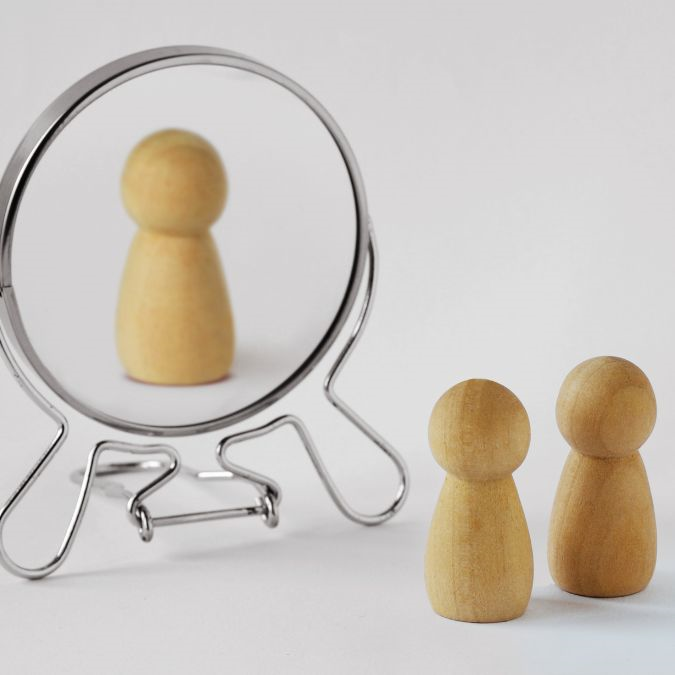A couple sharing the same energy lessons should ideally create a harmonious relationship, full of mutual understanding and shared responsibilities. However, when both partners haven’t fully mastered this energy lesson, passivity and dependency can lead to stagnation in the relationship.
Earth energy tends to be quite passive. Its strengths include gentleness, flexibility, tolerance, and a willingness to sacrifice. A couple with the same energy may find common ground in prioritizing care, meticulousness, and thoroughness in the family.
But when the husband’s energy operates on the negative side, he often becomes overly patient and enduring. In times of crisis, he doesn’t address issues assertively like masculine energy might. Instead, he suppresses his reactions, rarely showing decisive responses, which makes him appear passive, weak, and indecisive.
The nature of this energy is to absorb first and then transform, so it’s not equipped to face challenges head-on at the beginning.
Although they share the same energy, the husband’s endurance is better, making him hesitant to take risks. As a result, both partners need to learn to face challenges and transform together. This shared gentle and nurturing energy style makes it difficult for either of them to take charge when problems arise.
.jpg)
The husband follows his mother’s advice, which complicates matters, while the wife expects him to take more responsibility. The husband exhibits common traits of “Earth” energy when his inner strength hasn’t been firmly established.
On the other hand, the wife’s sacrifices aren’t met with understanding. She feels unappreciated, burdened with pressure, and overwhelmed by negative emotions. Instead of transforming these emotions, she becomes affected, leading to fatigue, wounded pride, and a loss of the gentleness inherent in this energy.
This energy is easily influenced by external factors, swayed by others’ opinions. As a result, conversations between the couple may seem resolved, but once family influences intervene, the situation destabilizes, and their perspectives shift.
Neither partner is steadfast, leading to reliance on others. Both struggle to confront and handle emotions. The husband lacks firmness, while the wife feels isolated in the relationship.
This energy often requires extensive experiences before positive lessons can be drawn to help each grow into their roles. When undeveloped, it tends toward self-sacrifice, absorbing external influences and prioritizing others. This is why the husband seeks his mother’s advice—his inner strength hasn’t been cultivated yet.
The wife absorbs negative emotions, feeling her sacrifices for the family are unrecognized. She feels unprotected and uncared for by her husband. With ongoing issues, the wife internalizes negativity and, unable to transform it, becomes resentful, harboring pride, and clashing with her husband and in-laws. Neither truly understands the other, and the husband feels his wife is hostile and negative toward his family.
It’s unfortunate because this energy’s essence is tolerance and endurance, yet both are struggling with their lessons. The resulting tension and negative impacts on their relationship could be mitigated if they were better able to process their internal struggles.
When the internal energy isn’t transformed, the remaining negative energy from the other partner compounds the situation. Without a method to balance, it’s easy to feel drained and irritable, straining the harmony. The cycle of struggling with patience and wounded pride repeats itself.
Both feel pressured by their responsibilities, as this energy tends to be passive. As a wife, she hopes for understanding and support from her husband, but this leads to further conflict.
The Elemental Influence on Handling Challenges
.jpg)
The wife (Bính) is like the sun, nurturing but also prone to impatience and frustration when the husband doesn’t cooperate. The husband perceives this as controlling and lacking tolerance.
The husband (Ất), instead of embodying the adaptability and flexibility of a plant, becomes dependent on others (his mother), creating imbalance in his role as a husband.
The wife (Bính) often has foresight, which helps guide and lead the family. However, when things don’t go as planned, she becomes impatient, frustrated, and feels trapped in deadlock.
The husband (Ất) represents the energy of a soft plant, learning to grow by leaning on others for support. But instead, he shows dependency and avoids responsibility.
Their emotional management styles differ too. The wife’s Bính (Fire) energy is direct and intense, expressing dissatisfaction outwardly. The husband’s Ất (Wood) energy, on the other hand, is inward, suppressing his feelings and not clearly articulating what he wants.
This stark contrast makes the wife feel the husband is indifferent and weak, while the husband finds the wife’s energy overwhelming. This creates a negative loop: the wife becomes more impatient, and the husband retreats further.
This isn’t a result of conflict, but of both partners not fully mastering their individual lessons.



